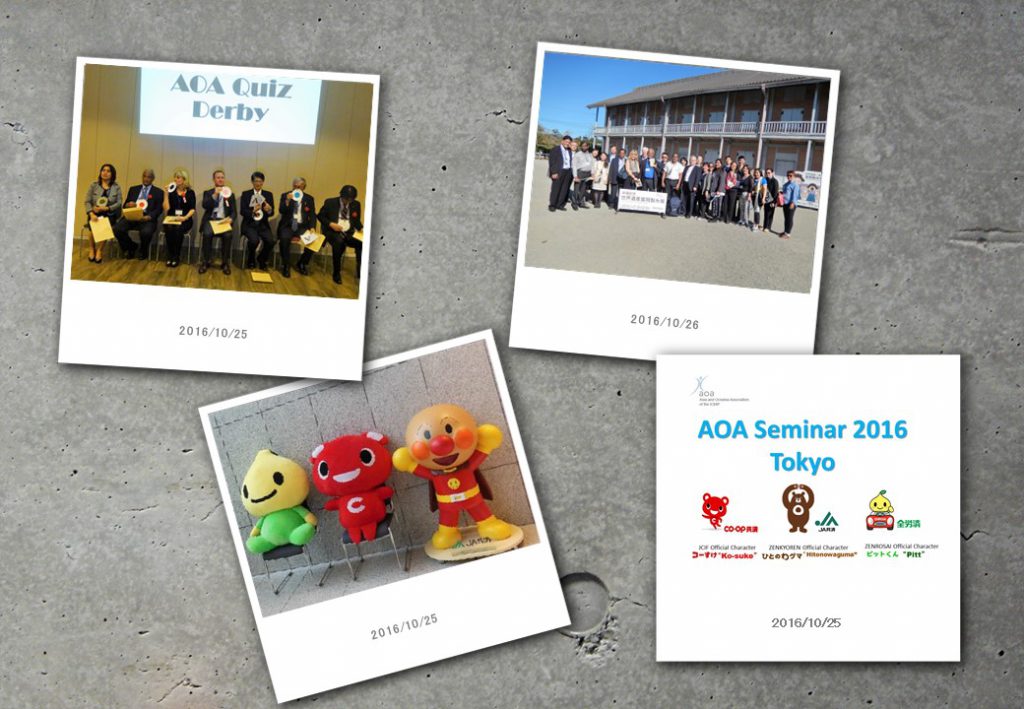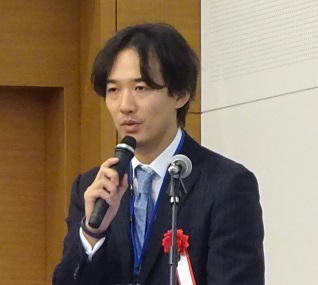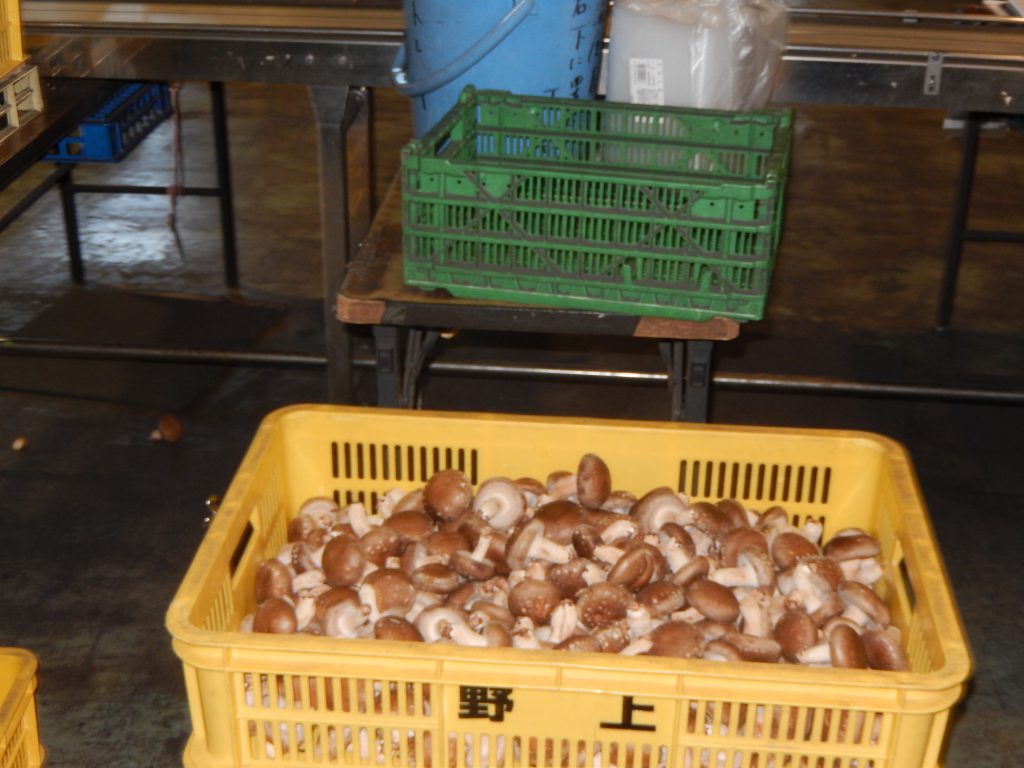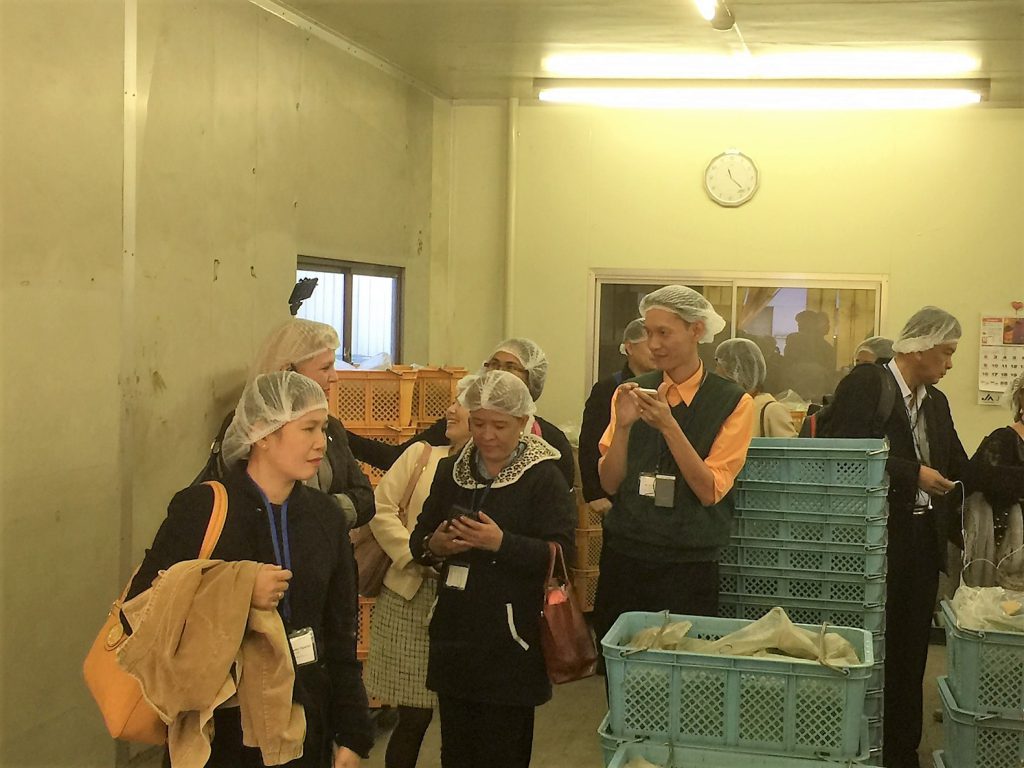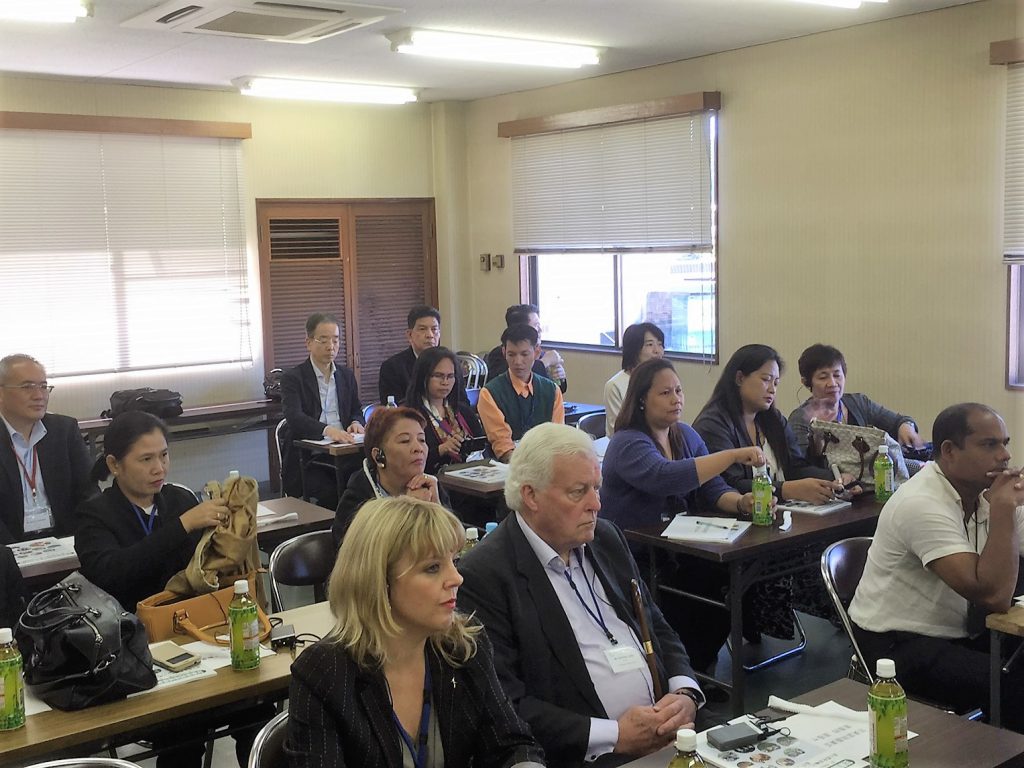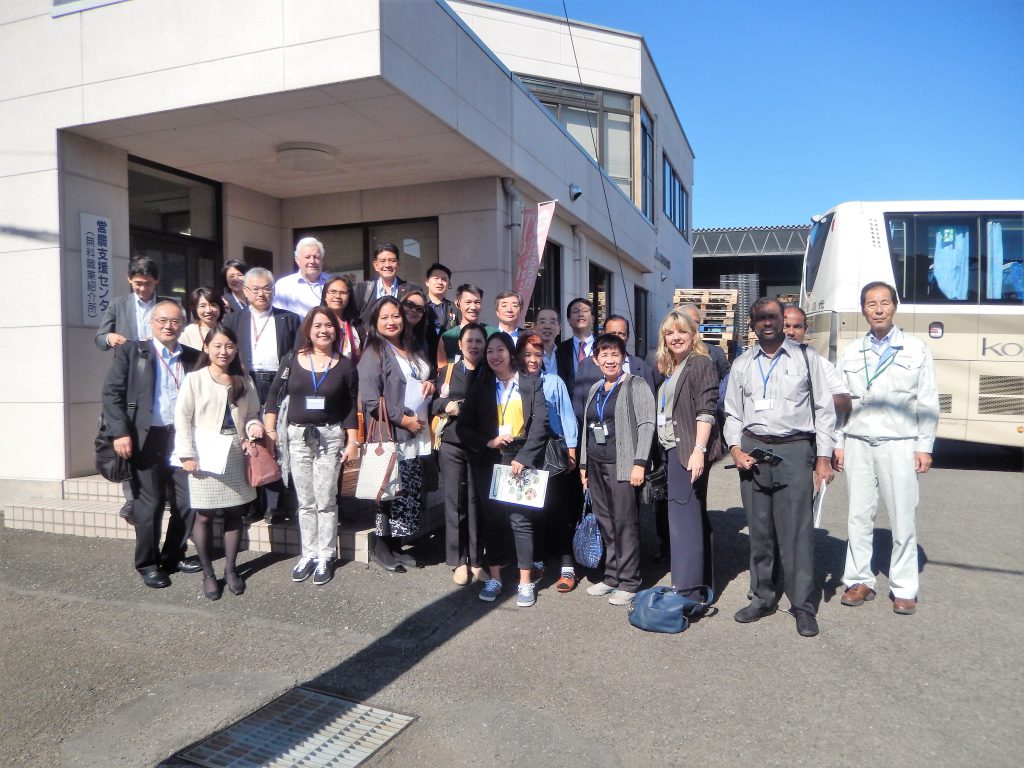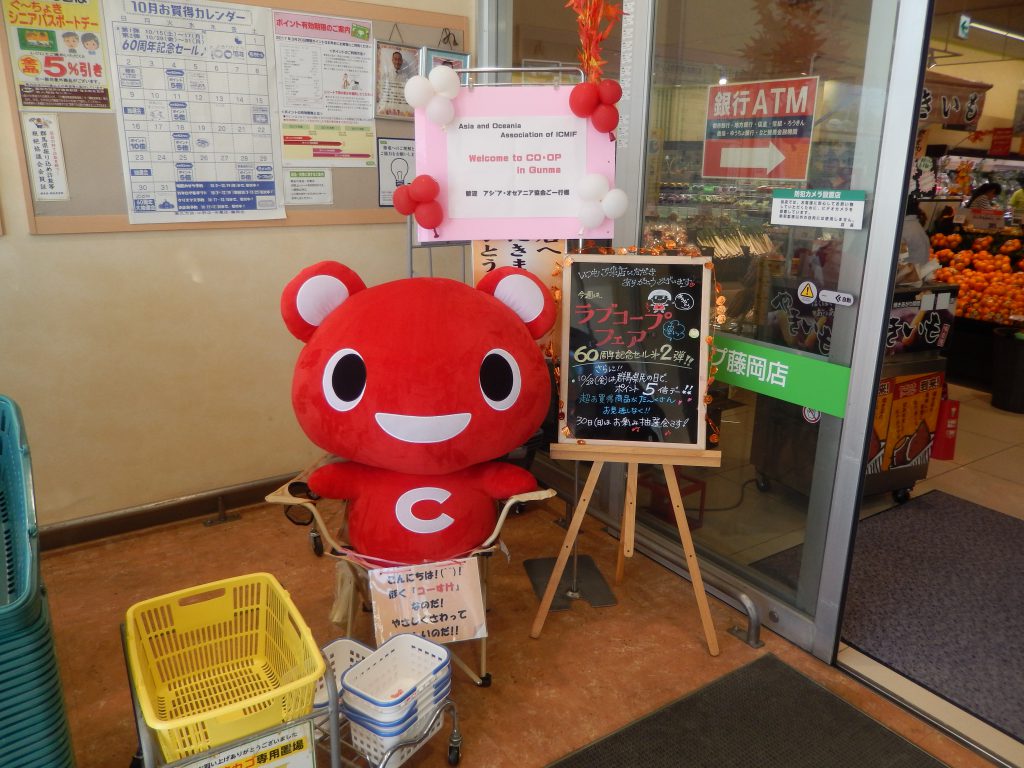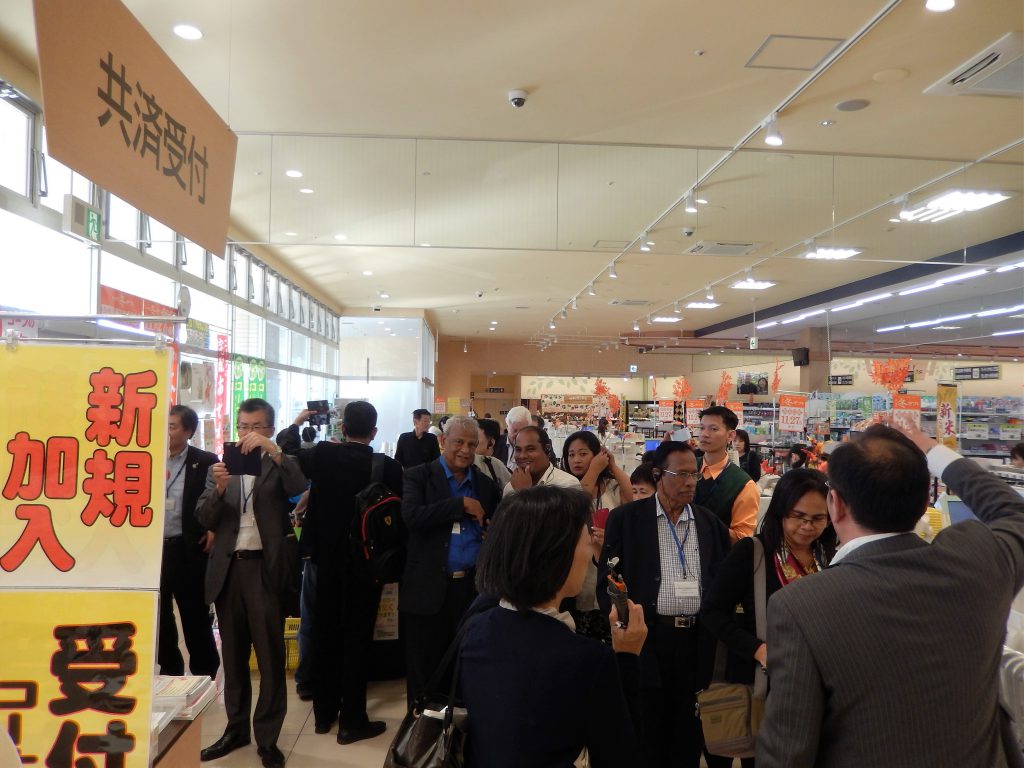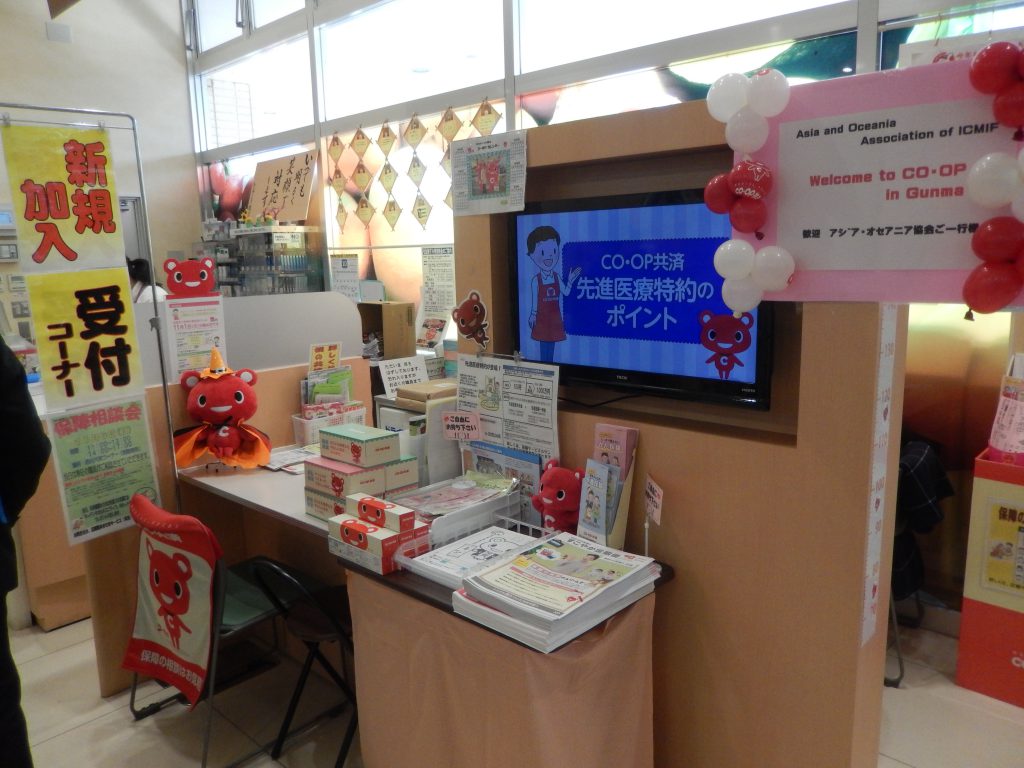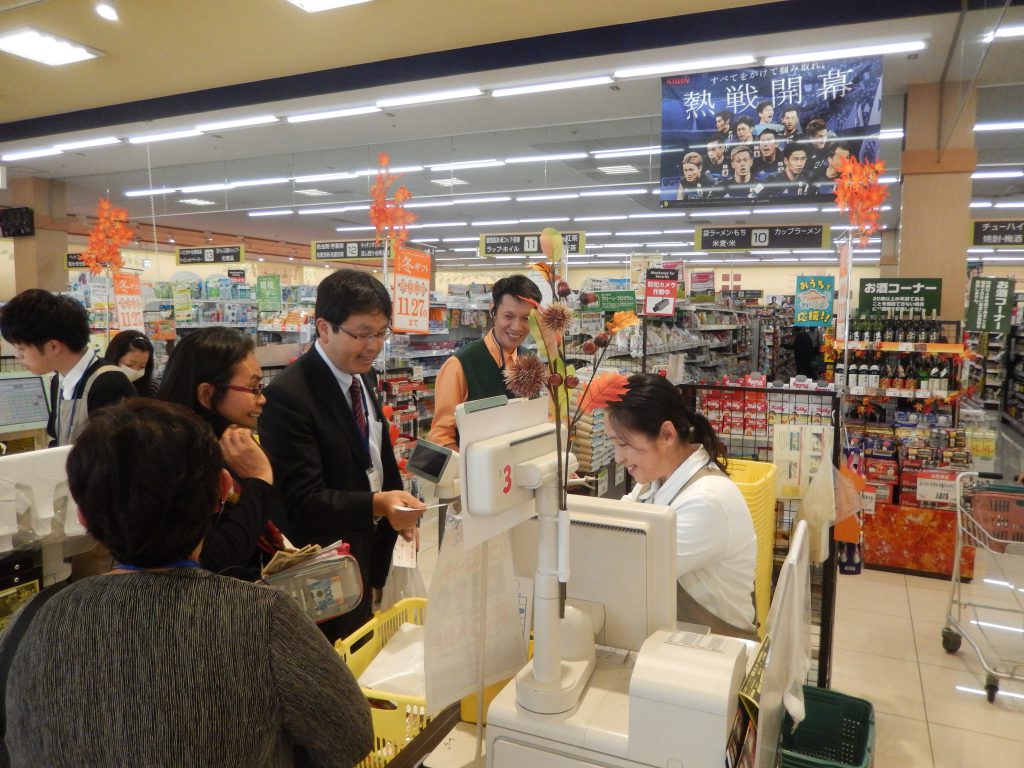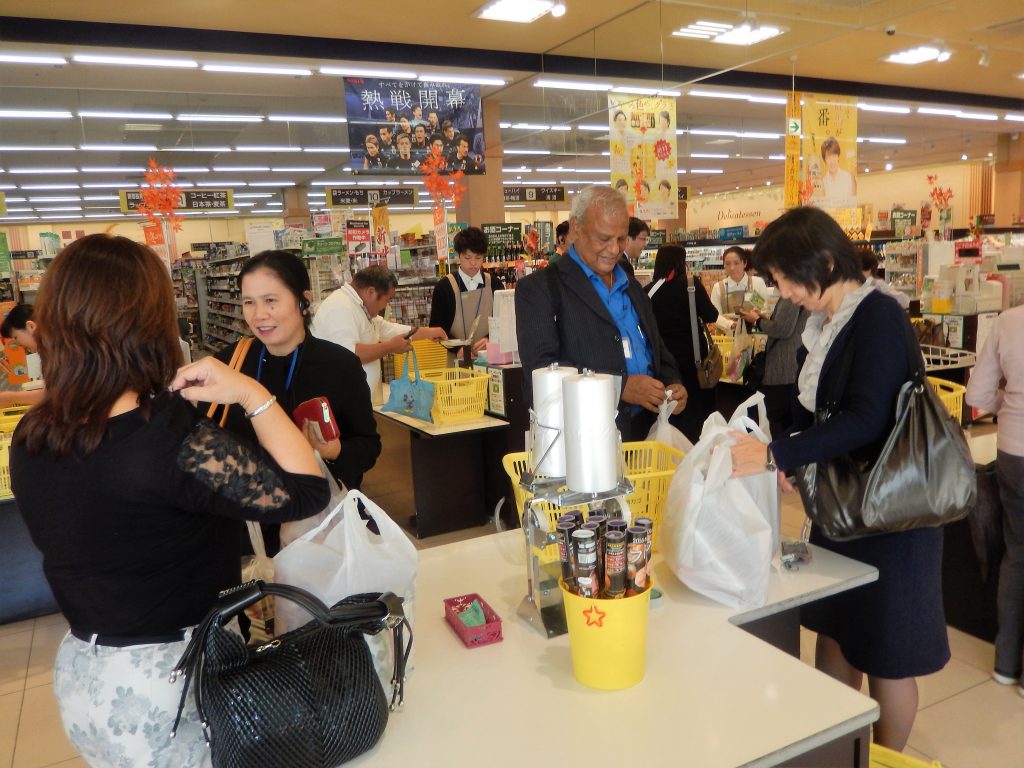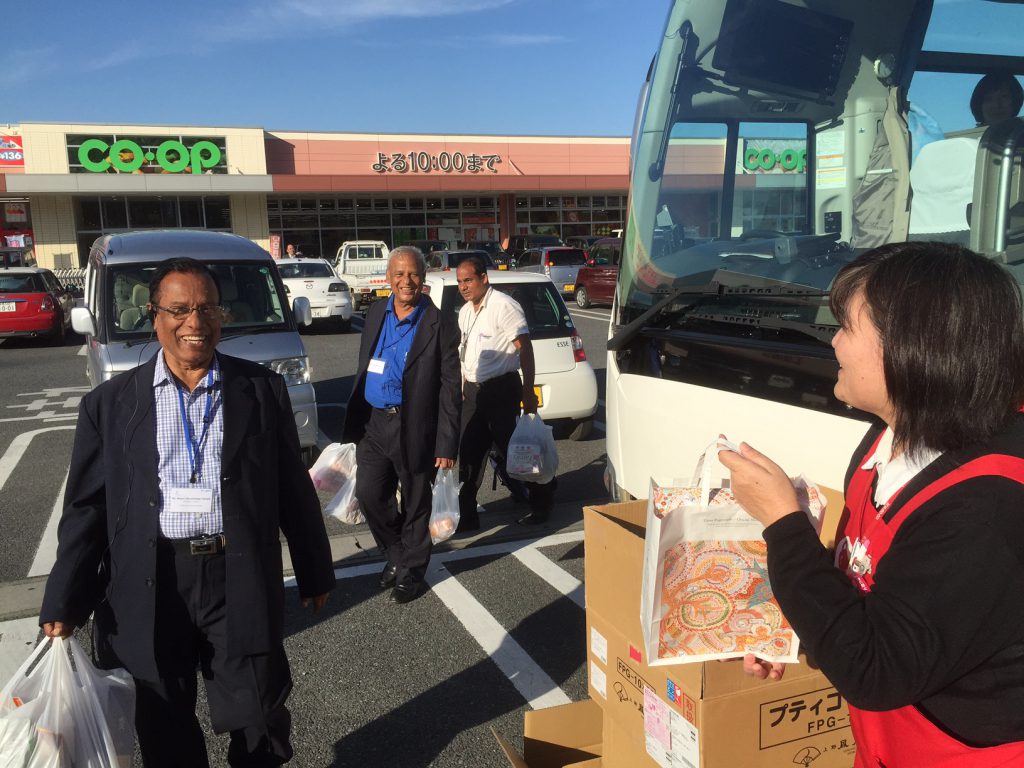Report on AOA Seminar 2016
The Asia and Oceania Association (AOA) of the International Cooperative and Mutual Insurance Federation (ICMIF) held “AOA Seminar 2016” for executives and employees of member organizations for two days from Tuesday, Oct. 25 to Wednesday, Oct. 26, 2016. We will report on its contents as follows.
This seminar is held once every two years in order to develop cooperative and mutual aid organizations in the Asia and Oceania region. While hearing lectures by external specialists and presentations on best practices of AOA member organizations, participants learn a lot about the latest information on changin world and economy, deepen their thoughts on initiatives to deal with issues common to member organizations, and promote mutual understanding and exchange with other members.
1.Dates and place
Tuesday, October 25, 2016 9: 15 a.m. – 5: 30 p.m.
Seminar at JA Kyosai Building Conference Hall (Hirakawa-cho, Chiyoda-ku, Tokyo JAPAN)
Field trip to Kanra-Tomioka Agricultural Cooperative (Tomioka City, Gunma Prefecture) and Co-op Fujioka of Co-op Gunma (Fujioka City, Gunma Prefecture)
2.Theme
“Reaching Tomorrow’s Customers Today”
3.Host and Co-hosts
Host: AOA
Co-hosts: JCIF, Zenrosai, Zenkyoren
4.Main contents
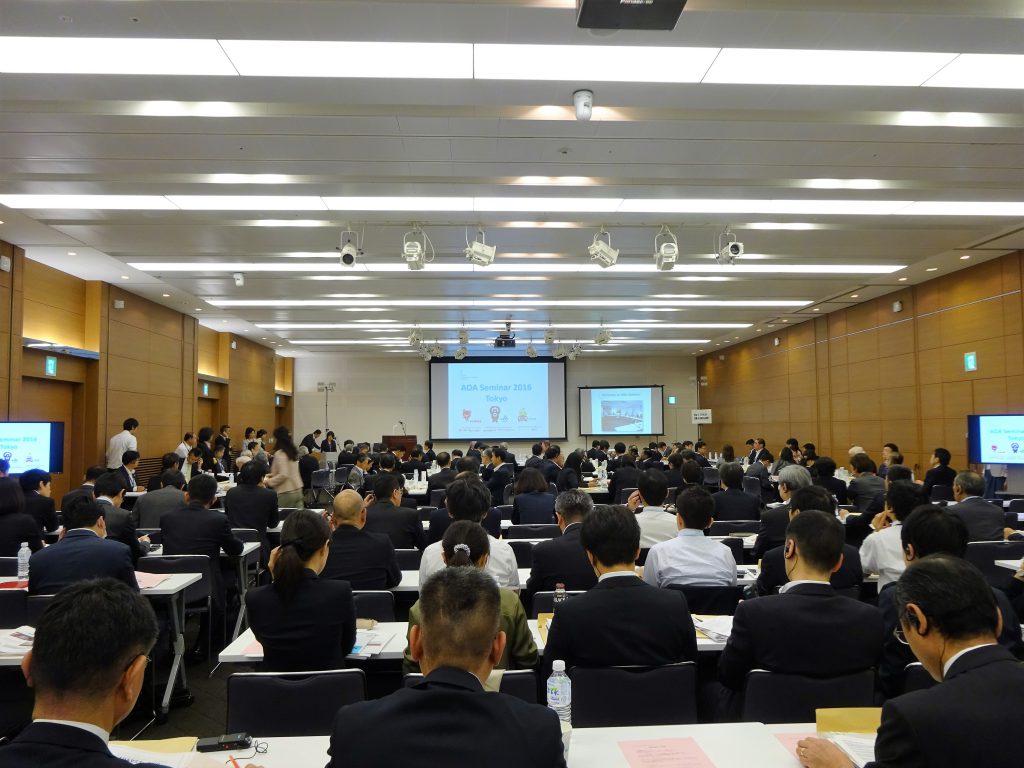
Regarding the utilization of “digital technology” and “participation by young people,” which are common issues among cooperatives and mutual aid organizations around the world, on the first day we shared information on best practices by our members tackling these issues, and on the second day we visited an agricultural cooperative and a co-op in Gunma prefecture and learned a lot about concrete examples of their initiatives.
Although it was a brief schedule of two days, various case studies and problem presentation about the above-mentioned subjects were made. Active exchange of opinions was also carried out by participants as well as social interactions and personal relationships.
According to the questionnaire filled out at the venue on the first day, there were a lot of positive comments from the participants, such as “There was a new awareness” or “Let me study further so that we can carry out those initiatives in my home country,” as well as “This seminar was so exciting because there are few places to interact with other organizations” or “I want to make sure not to be defeated by the enthusiasm of the staff who is doing their best in the field.”
(1) Case reports with the theme of “Reaching Tomorrow’s Customers Today”
On the first day, more than 200 participants from 29 organizations in 9 countries gathered at the JA Kyosai Building Conference Hall. They learned a lot from various speeches and case reports by AOA members and external specialists about the current state of digital technology in cooperative and mutual aid fields and the young people who are using digital technology as a part of their lives.
Chihiro Ikusawa, Managing Director of Zenrosai, acted as a general moderator.
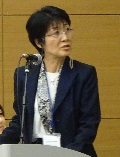
a. Keynote speech and other speeches
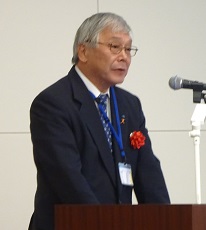 At the beginning of the seminar, AOA Chair Tamotsu Shozui greeted the participants with a welcome message and said, “I realized that the theme of this seminar was a topic of high interest because participants far outnumbered the conventional scale.”
At the beginning of the seminar, AOA Chair Tamotsu Shozui greeted the participants with a welcome message and said, “I realized that the theme of this seminar was a topic of high interest because participants far outnumbered the conventional scale.”
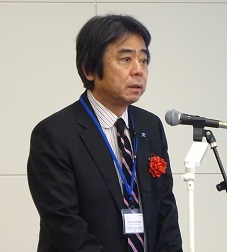 Then, Hiroshi Nakaseko, President of Zenrosai, welcomed the participants, representing three host organizations. In his speech, Mr. Nakaseko emphasized, “While it is urgent to deal with the digital innovation and the young people, it is also important for us to widely convey the significance and value of cooperative and mutual aid organizations to the society through our practice.”
Then, Hiroshi Nakaseko, President of Zenrosai, welcomed the participants, representing three host organizations. In his speech, Mr. Nakaseko emphasized, “While it is urgent to deal with the digital innovation and the young people, it is also important for us to widely convey the significance and value of cooperative and mutual aid organizations to the society through our practice.”
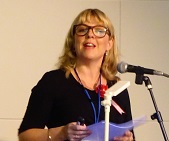 In her keynote speech, Liz Green, Senior Vice President of ICMIF, reported, “Our social influence has been increasing in recent years. For example, cooperative insurance organizations, such as ICMIF, have been invited to the General Assembly and other meetings of the United Nations and the World Bank.”
In her keynote speech, Liz Green, Senior Vice President of ICMIF, reported, “Our social influence has been increasing in recent years. For example, cooperative insurance organizations, such as ICMIF, have been invited to the General Assembly and other meetings of the United Nations and the World Bank.”
The global reputation report 2016
・Presentation (PDF) download (452KB)
The next speaker was Yuji Ohkita, Managing Director of Accenture Japan Ltd. Using various examples, he explained, “With the development of digital technology, the majority of mutual aid and insurance industry will be transformed dramatically, and in order to survive, product development, establishment of sales channels, and provision of added value should be based on the application of digital technology.”
Beyond Conventional “Insurance” Business
– Evolution of Insurance Business via Digital Innovation
b. Case report (ICMIF member outside the Asia-Oceania region)
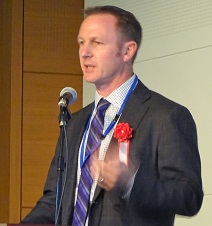 As an excellent case from a ICMIF member outside the Asia-Oceania region, Bill McKinney, Vice President of Thrivent Financial (Minneapolis, USA), introduced their efforts to attract young people and utilize digital innovation.
As an excellent case from a ICMIF member outside the Asia-Oceania region, Bill McKinney, Vice President of Thrivent Financial (Minneapolis, USA), introduced their efforts to attract young people and utilize digital innovation.
Bill reported, “Insurance industry is the third least attractive workplace to Millennials in the US, however, reputation of the organization is the second place among the factors that influenced Millennials’ decision to accept current role. Having recognized it, Thrivent started volunteer activities planned by young employees and as a result of the efforts on reputation building, the number of activities of the reform project, which was only 20 four years ago, have now exceeded 110,000 and this project has greatly contributed to the promotion of our cooperative movement.”
Attracting the young generation and utilizing digital innovation
・Presentation (PDF) download (8.03MB)
The History of Thrivent Financial (Video)
・Video (MP4) download (48.0MB)
c. Case reports (AOA members)
In the afternoon, several AOA members reported case studies. First, Ken Ng, CEO of NTUC Income from 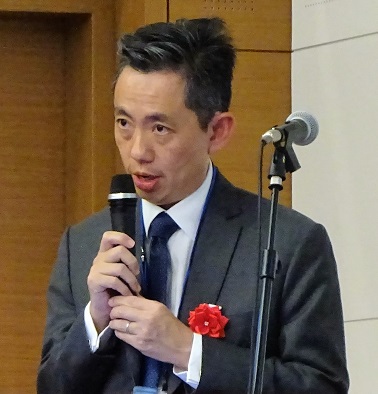 Singapore, reported his organization’s efforts. He said, “In order for cooperatives to survive, organizational reform corresponding to change of consumer behavior is necessary,” and he introduced his organization’s reforms in the past, at the present and for the future.
Singapore, reported his organization’s efforts. He said, “In order for cooperatives to survive, organizational reform corresponding to change of consumer behavior is necessary,” and he introduced his organization’s reforms in the past, at the present and for the future.
Organization Change and Digital Innovation
・Presentation (PDF) download (3.65MB)
・Slideshow (MP4) download (58.5MB)
From Japan, four AOA member organizations, UCMAF, Zenrosai, JCIF, and Zenkyoren, reported their respective activities.
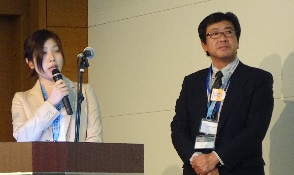
Koichi Otani and Yuki Masumoto of UCMAF introduced its case in which students themselves actively promote mutual aid by utilizing the community of universities.
Characteristics and challenges of UCMAF
and the living condition of the students
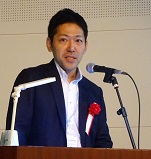 Shigefumi Miyamoto, Manager, Sales Promotion Department of Zenrosai introduced the current situation and problems of the website established as a new channel for customer acquisition.
Shigefumi Miyamoto, Manager, Sales Promotion Department of Zenrosai introduced the current situation and problems of the website established as a new channel for customer acquisition.
Appealing Benefits and On-line Promotions
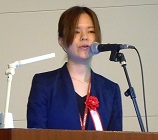 In order to enhance relationship with the target group such as housewives and children, JCIF, which aims to expand the mutual aid business through the purchasing business, created a friendly mascot character “Kosuke,” said Kaori Tamanaga, Public Relation Group of JCIF.
In order to enhance relationship with the target group such as housewives and children, JCIF, which aims to expand the mutual aid business through the purchasing business, created a friendly mascot character “Kosuke,” said Kaori Tamanaga, Public Relation Group of JCIF.
Public Relations for Young Generations
・Presentation (PDF) download (2.06MB)
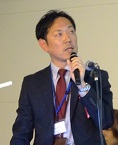 Koji Kawamura, Manager, Sales Department of Zenkyoren, introduced their efforts such as “JA Kyosai Anpanman Children Club” targeting pregnant women and children and their families.
Koji Kawamura, Manager, Sales Department of Zenkyoren, introduced their efforts such as “JA Kyosai Anpanman Children Club” targeting pregnant women and children and their families.
Thinking about Tomorrow‘s CustomersToday
In addition, Naruto Takahashi of the AOA Secretariat reported on AOA members’ questionnaire responses on digitalization and younger generation, which was conducted by the Secretariat in March.
AOA Members’ Questionnaire Responses on Digitalization and Younger Generations (March 2016)
・Presentation (PDF) download (573KB)
d. Case study (An Agricultural Cooperative or JA)
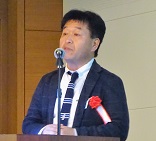 At the end of the seminar on the first day, Fumihide Nishizaka, General Manager, Ochiimabari Agricultural Cooperative (Japan) gave a presentation as an excellent case of Japanese cooperative. He introduced the activities leading to agricultural promotion and regional revitalization by developing unique measures such as “Saisaikiteya,” one of the largest farmers’ markets in Japan and agricultural experiences for children. Nishizaka also said, “In order to coexist with the region, it is necessary to create a win-win mechanism between the region and the agricultural cooperative. The agricultural cooperatives are to strengthen local agriculture and teach agriculture.”
At the end of the seminar on the first day, Fumihide Nishizaka, General Manager, Ochiimabari Agricultural Cooperative (Japan) gave a presentation as an excellent case of Japanese cooperative. He introduced the activities leading to agricultural promotion and regional revitalization by developing unique measures such as “Saisaikiteya,” one of the largest farmers’ markets in Japan and agricultural experiences for children. Nishizaka also said, “In order to coexist with the region, it is necessary to create a win-win mechanism between the region and the agricultural cooperative. The agricultural cooperatives are to strengthen local agriculture and teach agriculture.”
Sales Strategies with Consideration Given to Coexistence with Local Communities
・Presentation (PDF) download (3.29MB)
e. Presentation of participants’ impressions
Finally, on behalf of the participants, Sahaphon Sangmek, Managing Director of Union Life Insurance Public Company Limited (Thailand) and Takashi Ogihara, Senior Managing Director of JCIF presented their impressions of the day.
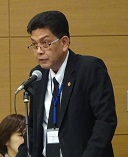
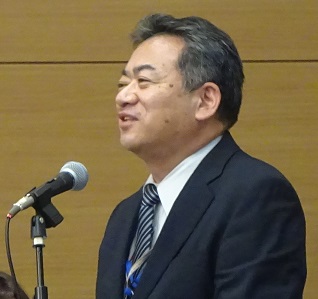
(2) Field trip to the cooperatives which are rooted in the community
On the second day of the seminar, about 30 people from 16 organizations in six countries visited JA Kanra Tomioka and Co-op Fujioka store of Go-op Gunma in Gunma prefecture to study the activities of community-based cooperatives. Many of the participants from overseas visited Japan for the first time. They went straight to Gunma from Tokyo by bus and enjoyed the scenery of rural Japan, which spread over the car window.
a. Building strong agriculture and promoting mutual insurance (JA Kanra Tomioka)
At JA Kanra Tomioka, first of all, Kenji Kurosawa, Director, stated that “In Japan, where farming families are central, it usually becomes difficult for farmers to continue their business once a family member died or became disabled. The provision of security through mutual insurance and the management of elderly nursing home care facilities are major support for farming families in that case,” and he explained that there was a close relationship between building strong agriculture and promoting mutual insurance.
In addition, as a case study of building strong agriculture, Mr. Yoshida, General Manager of Farming Department and Mr. Iino, Manager of Direct Sales Center introduced the efforts of developing farmers’ market in supermarkets in the metropolitan area. When they talked about Co-op Mirai where JA Kanra Tomioka also opened farmers’ market, there were comments from participants praising the cooperation between an agricultural cooperative and a consumers’ cooperative because it was in a very visible way from consumers.
Regarding JA’s business activities that support local agriculture and society, many participants from outside Japan were saying that “It will be a very useful reference to our own efforts in my home country.”
b. Mutual insurance consultation desk in the co-op supermarket (Co-op Fujioka store of Co-op Gunma)
After that, the party visited the Co-op Fujioka store of Co-op Gunma, which boasted over 2,000 shoppers on weekdays and over 3,000 shoppers at weekends. Mr. Naoki Hasegawa, Manager of Co-op Insurance Department guided inside the store.
At the entrance of the store and the co-op insurance consultation desk that was set up inside the large store, “Kosuke” (JCIF’s mascot character) who won the enterprise division of the Yuru-Chara Grand Prix 2013 welcomed shoppers. As the consultation desk has a so friendly atmosphere that children and mothers casually drop in on. There are a lot of shoppers who visit the desk for insurance subscription and claim.
Everybody greatly enjoyed the shopping experiences in the Japanese supermarket.
Presentation materials, photographs, etc. are provided with the permission of presenters and related organizations.
Acts that conflict with copyright such as unauthorized reproduction are strictly prohibited.





